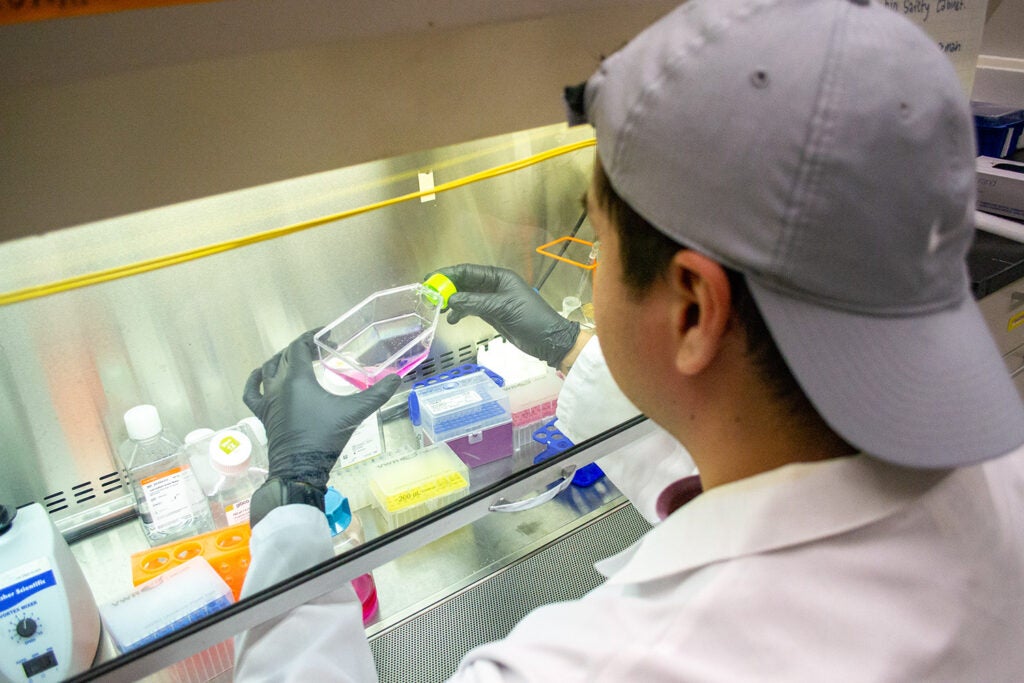Curriculum
What You’ll Learn
Our Ph.D. candidates obtain a comprehensive and well-rounded background in the neurosciences, covering cellular, molecular, systems and cognitive approaches. Students complete required courses in neuroscience as well as advanced electives and laboratory rotations.

Coursework is completed in the first two years of the program. The IPN’s course schedule focuses on required courses and laboratory rotations for the first year, adding elective courses and thesis research in Year 2. Students take written and oral comprehensive examinations, and finally defend their thesis to complete their studies.
The IPN curriculum takes a multifaceted approach to learning. Formal and informal learning situations are integrated into the study in the form of student seminars, journal clubs, and other activities with fellow students and faculty.
Fill out our Request for Information form or contact us to learn more about the IPN.
Transfer Credit/Advanced Standing: A Ph.D. student may make a written request for the transfer of credit for specific applicable courses or apply for advanced standing. Please speak with program leadership and review the policy on transfer credit and advanced standing.
M.D./Ph.D. Program
The M.D./Ph.D. Interdisciplinary Program in Neuroscience is a dual doctorate program designed for students interested in careers as physician-scientists. M.D./Ph.D. students receive a top-tier medical education at Georgetown University School of Medicine, combined with research training in laboratories of premier investigators. The Ph.D. curriculum is tailored to complement the medical coursework for these students.
Completion of Degree
Present and defend your dissertation, and apply for graduation.
Career Advancement
Our students benefit from the services of the Biomedical Graduate Education career office, including one-on-one advising, skills workshops, leadership programs and more.